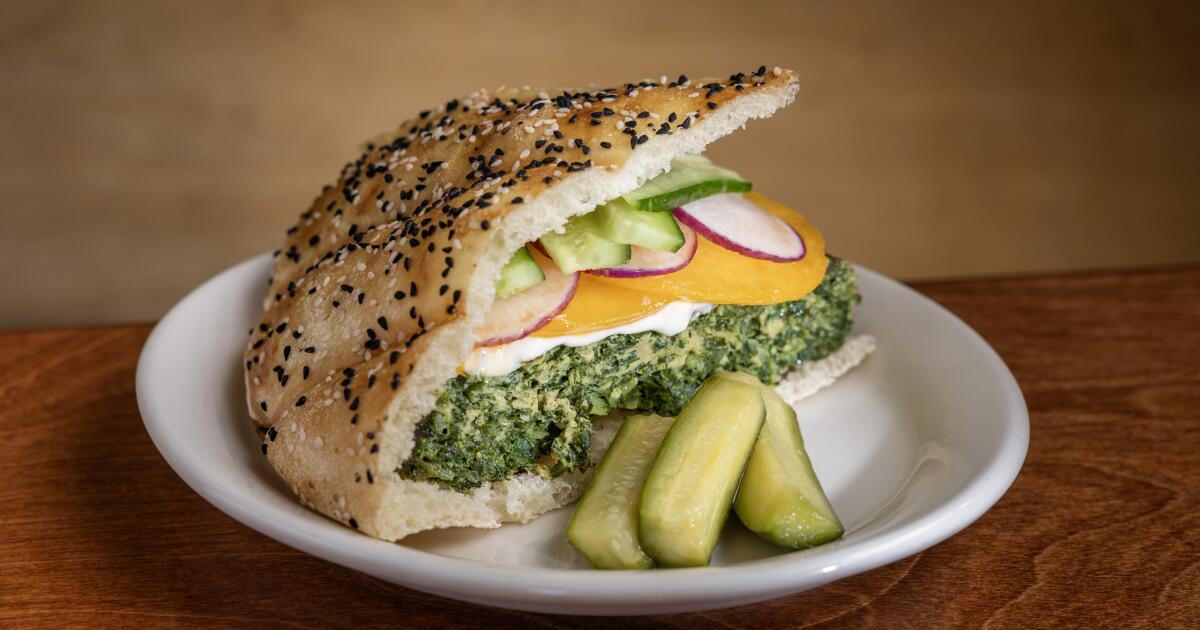Best vegetarian and vegan sandwiches to try in Los Angeles
This quirky Frogtown sandwich shop, which also happens to serve some of the best soft serve in town, names each of its menu items after NPR hosts. One of the most popular options? The Ira Glass, Wax Paper’s riff on a classic hippie sandwich, named for the legendary host of “This American Life.” Slices of Bub & Grandma’s seeded sourdough wheat bread are swiped with a garlic aioli and then topped with half of an avocado, shredded Tillamook sharp cheddar, cucumber slices, both pickled and raw red onions for extra flavor, and a mountain of alfalfa sprouts. It’s crunchy, fresh and often sells out, so make sure to place your order early. $16.50
